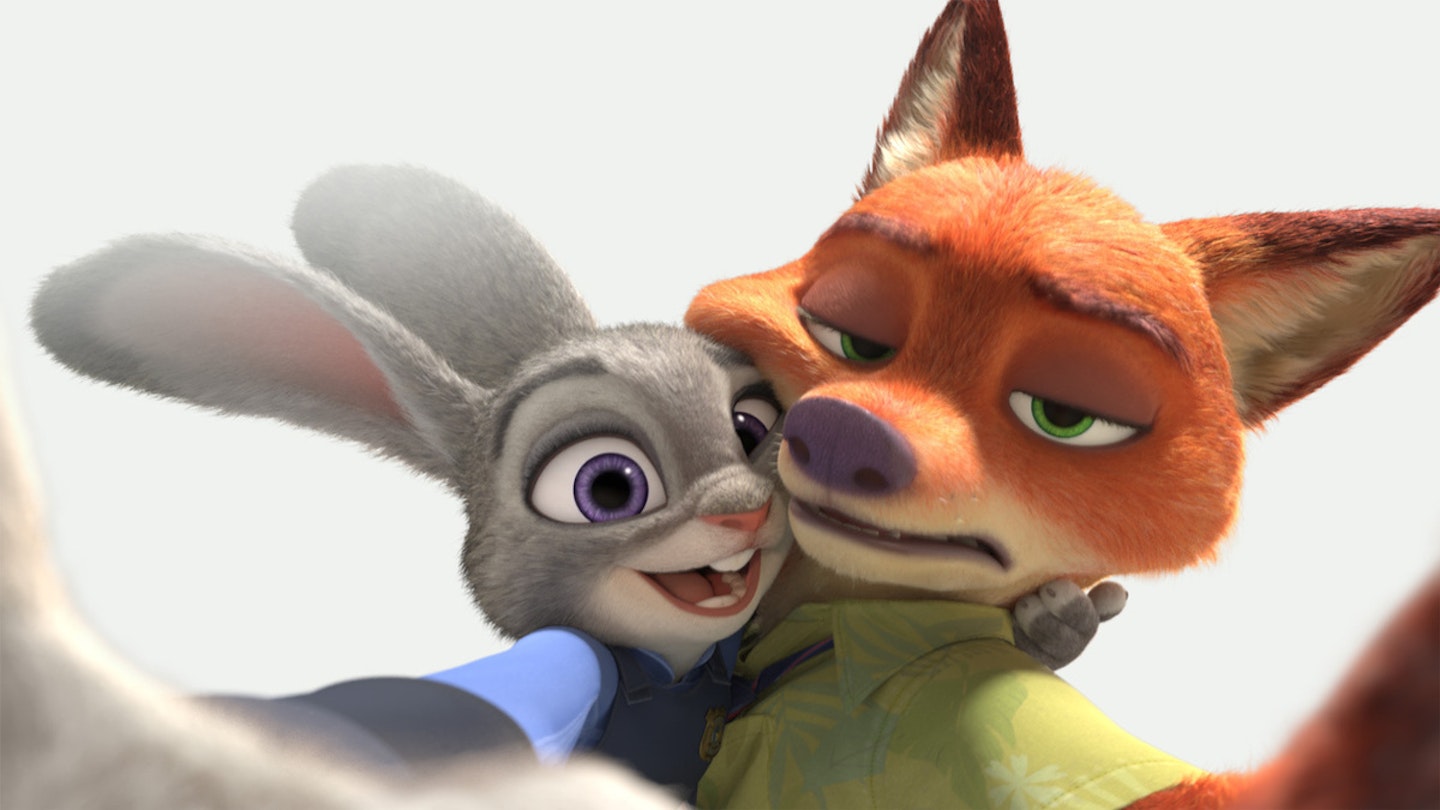Whether you know it as Zootopia in America or Zootropolis in the UK, Disney's mammalian masterpiece has been a elephantine success, earning over a billion dollars worldwide to become the fourth highest-grossing animated film of all time. Taking place in a city of anthropomorphic animals who actually live alongside each other in relative peace, the focus is on a rookie bunny cop (Ginnifer Goodwin's Judy Hopps) and a con artist fox (Jason Bateman's Nick Wilde) who work together to uncover a conspiracy that threatens to unravel their society.
The film's directors, Byron Howard and Rich Moore, sat down with us to reflect on the film's journey as it arrives on Blu-ray and digital download.
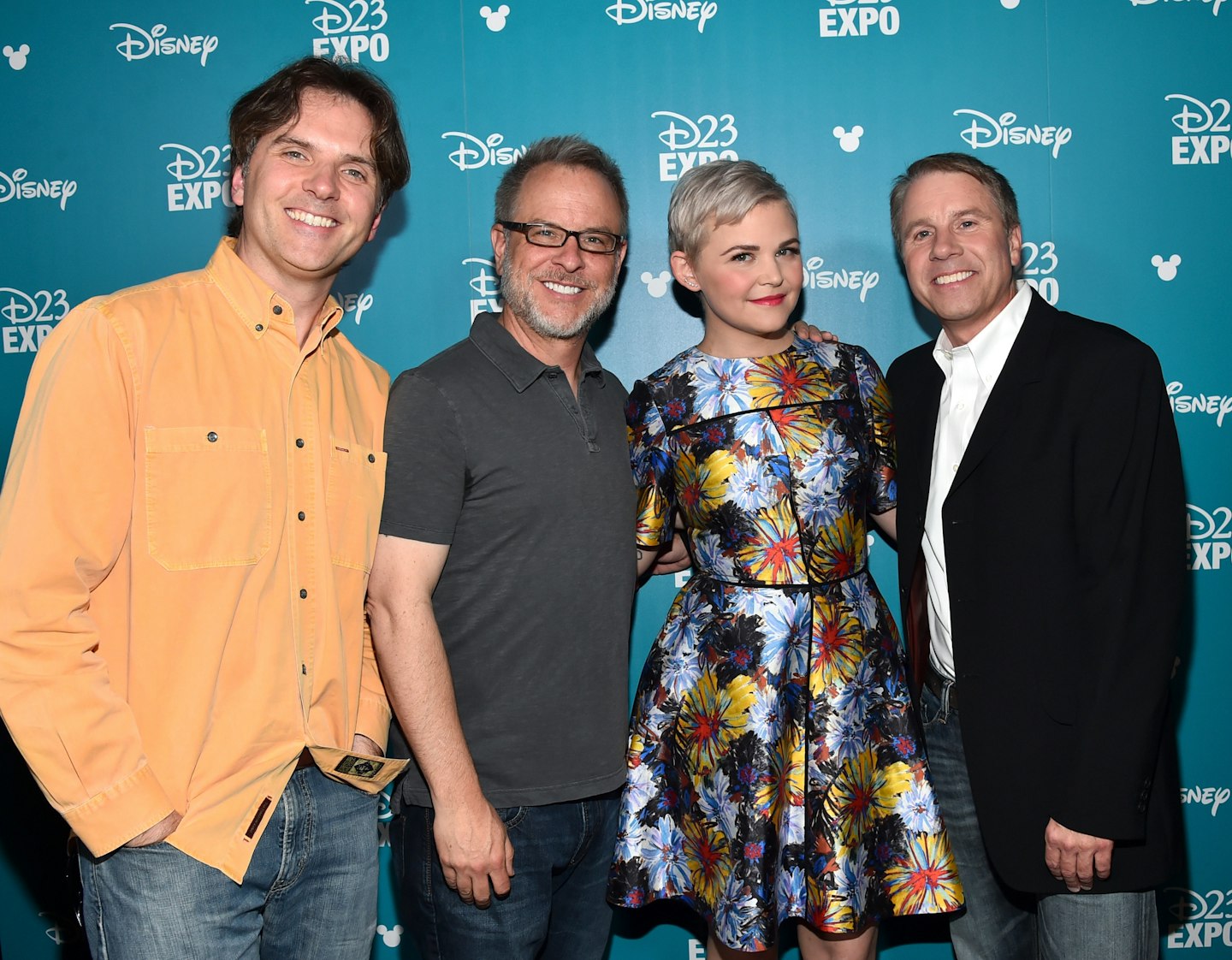
When you're working for a company where billion dollar grosses are happening more frequently, is it nonetheless mind blowing for you that Zootopia surpassed one billion dollars at the box office?
Rich Moore: Personally? Yes, because when we're working on it, we're never thinking, "This is going to make a lot of money." Or "Is it going to be super successful?" I'm always thinking how much I love the movie and how much I love the characters, and I'm trying to project on the screen for the audience what it is that I like about this world and these characters. I hope I'm doing a good job of portraying it. I hope that people are seeing what I'm loving about this. Also, Byron and I were just talking about it and the best we can do is kind of translate a billion dollars into the idea that the audience has come and seen it and embraced it and enjoyed it on a level that we do as filmmakers. It just feels like we did our job well.
It's also nice to see a film like this that's actually worthy of grossing a billion dollars.
Byron Howard: When the film first came out, it got a very good critical response, which was great for us. So, okay, great. The critics love it and then the question is, how is it going to do in the theaters? We hoped not to do one of those bad billion dollar movies.
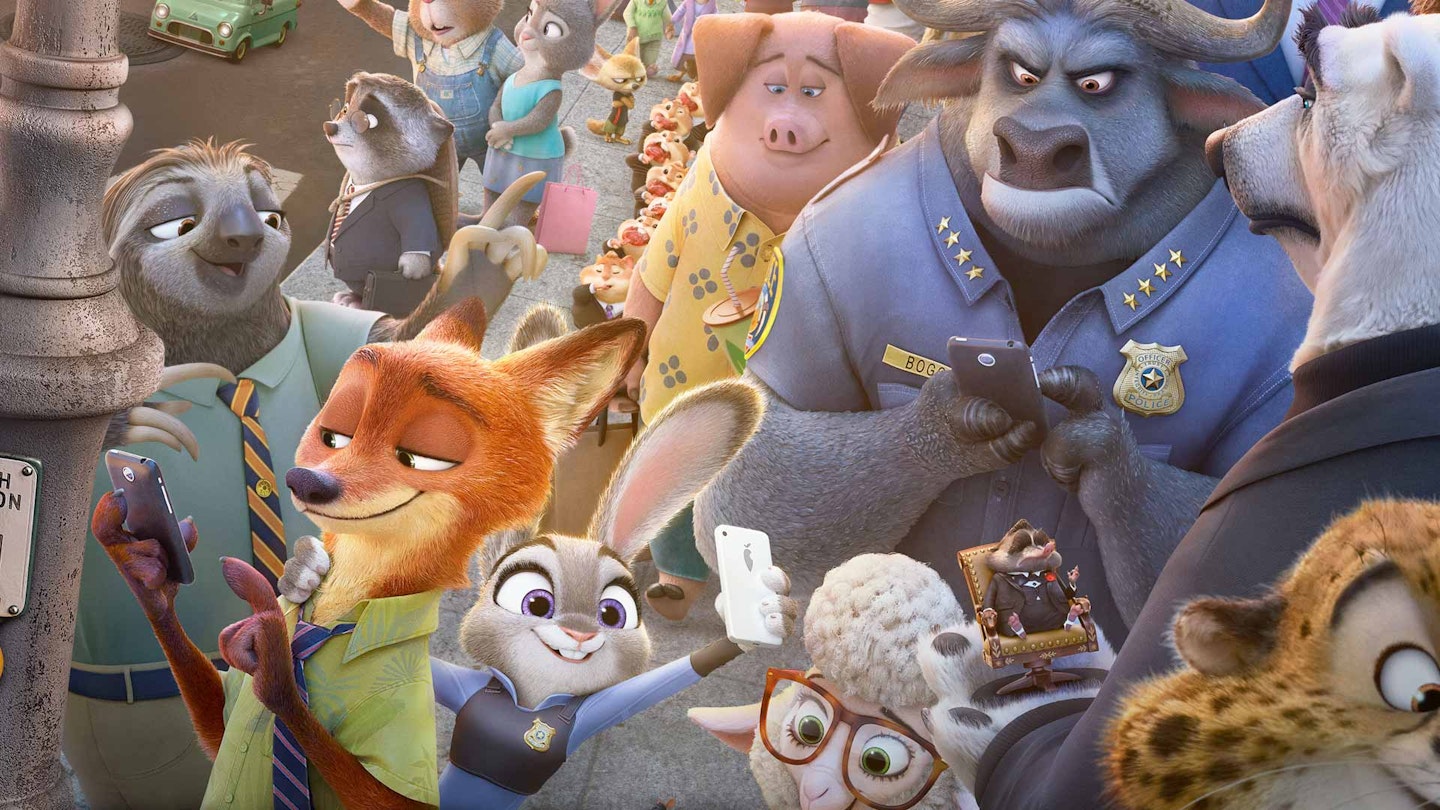
What was the genesis of this project?
Howard: When John Lasseter asks you to pitch ideas for a movie, he usually asks us to pitch more than one so that you don't put all your eggs in a single basket. I think he's also trying to figure out what you as directors are attracted to as far as the stories you want to tell. This was about five years ago. Nathan Greno and I actually pitched this film, the first version, together back when we had just finished Tangled. We pitched six different ideas and several of the ideas had anthropomorphic animal characters; animals that walk upright and talk. John got very excited about that, because he said we haven't done one of these films in a long time. Robin Hood was one of the last ones done at Disney, and that was 1973. It seems like part of the great Disney tradition to do that, so he got very excited. He said, "Well we should do this, but we need to make it different than any other animal film that you've ever seen before."
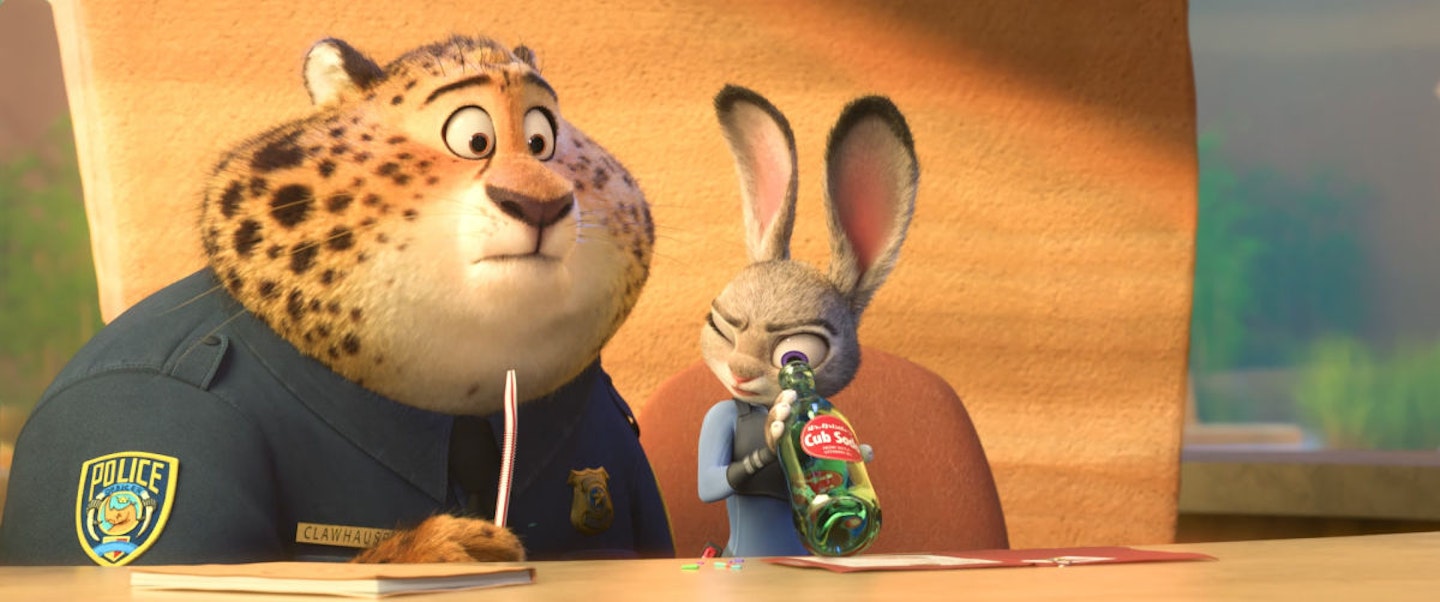
We did about a year of research into what makes animals cool and real, and we tried to bring that science and research into the movie. Even the fact that the core of the film was the idea of these two groups that don't get along and don't see each other eye-to-eye came from a trip we all took to Africa. When we were there, we spent some time by a watering hole where we saw animals come in and drink. We saw lions drinking next to zebras. They were not killing each other. There was no eating or hunting. They were just drinking and then they'd go their separate ways. That cooperation and understanding became the core of our film, because it's very much like a human city where people don't always see eye-to-eye, but they have to find a way to coexist.
What's effective about the film is that you're dealing with what are now more than ever genuine societal themes, but without bludgeoning us with it.
Moore: Which is what we wanted, which was to tell a story about bias and discrimination, and do it in an animal world where it was metaphorical. Where it played like a fable where it didn't feel like it was being preachy or that we were getting up on a soap box and saying, "I believe this and I think this is the cure to all of society's ills." We didn't want to approach it that way. We really wanted to tell the story through the eyes of our main character and how she dealt with her issues of bias and discrimination and how it impacted this friendship that she made with an unlikely friend.
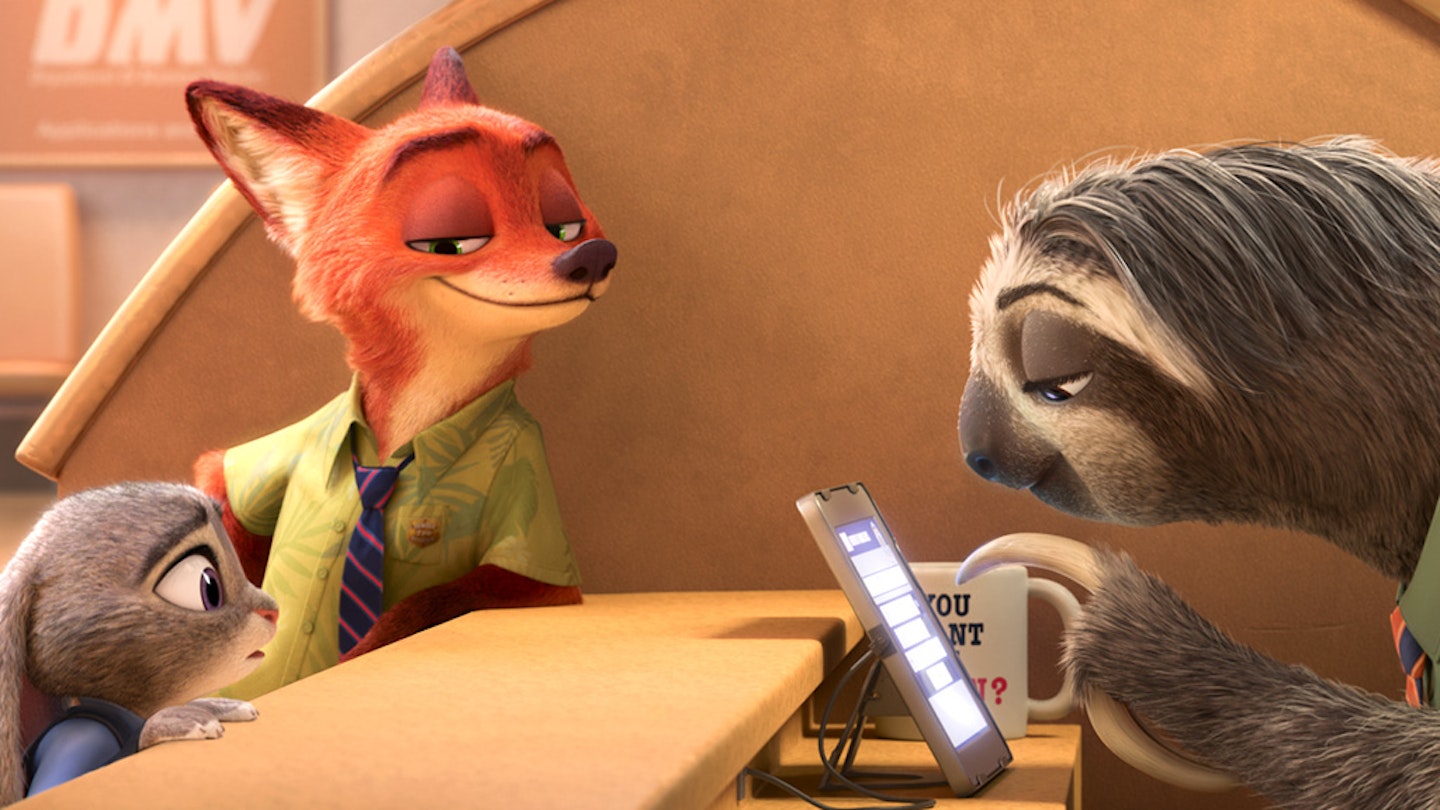
At the same time, it is a reflection of what's going on in the world.
Moore: We realized that as we were making the film. It made our resolve steelier to present it the best we possibly could. I think it's awesome that in a world where there is, right now, a lot of loud rancor and discourse, and a lot of people looking at the differences between us, that a little animated film can come along and respectfully have this point of view and say that maybe we are more alike than we are different. It can kind of cut through that noise. The success of the film just makes me feel that there is room for a positive voice in all the noise.
When the attitude of the animals begin to change, and you see mothers "protecting" their children from imaginary threats, it brought me back to the days following 9/11.
Howard: One of the things that doing the research into bias, and how human beings function as social animals, taught us is that it's very easy to let fear tip you back into those protective behaviors. It's the kind of thing we carry with us from when we were running around in tribes. It happens so easily. Where it got kind of spooky in some ways was when we saw these things coming into the news as we were making the film. It's a very contemporary, applicable movie for right now.
Moore: It wasn't theoretical.
Howard: It was being proven to us every day as we turned on the news.
Moore: People asked us if we'll be doing a sequel. If the fear of the other is going to continue being prevalent in our world, then maybe we do need to step up and do a sequel.
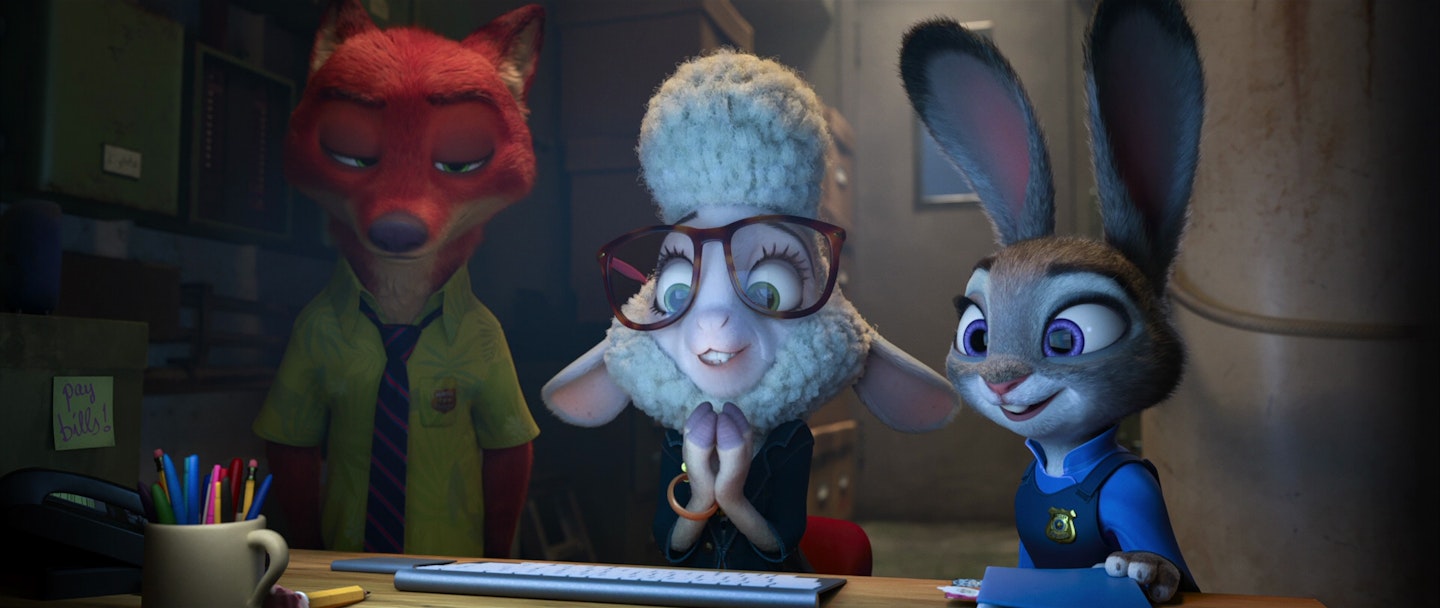
What sort of responsibility does a film like this, coming from the Disney brand, entail for you as filmmakers?
Howard: We definitely have an awareness. The nice thing is that there is no one above us who is censoring us and saying you can't tell this kind of story. We're encouraged to make very diverse movies, which is terrific. The movies don't have to resemble each other and they don't have to be about one specific thing. In fact, this was about something very different and kind of a tricky subject. It was great that we got that support from everybody to tell the story. But we do know that the effect that Disney movies have on the public and young people and generations of people is pretty profound. We don't take it lightly. We don't take ourselves too seriously, but we take the meaning of the films seriously. We want to deliver for people, because people have an expectation about what Disney movies are. I know that Rich and I grew up on Disney films and they made a massive difference in our lives as far as our outlook. So we recognize how powerful films can be.
The world isn't as simple as a motto on a bumper sticker
Moore: Working here right now, too, we're kind of saddled with the responsibility of being not only true to the legacy of the movies that came before us, but also being able to tell a story that a contemporary audience can relate to. We can't just remake Pinocchio or Snow White. We have to be able to speak to today's audience or else it's a pointless exercise. We're constantly on a tightrope act of staying true to the history of the studio, but then communicating to today's audience. Zootopia is the result of a great combination of those two things.
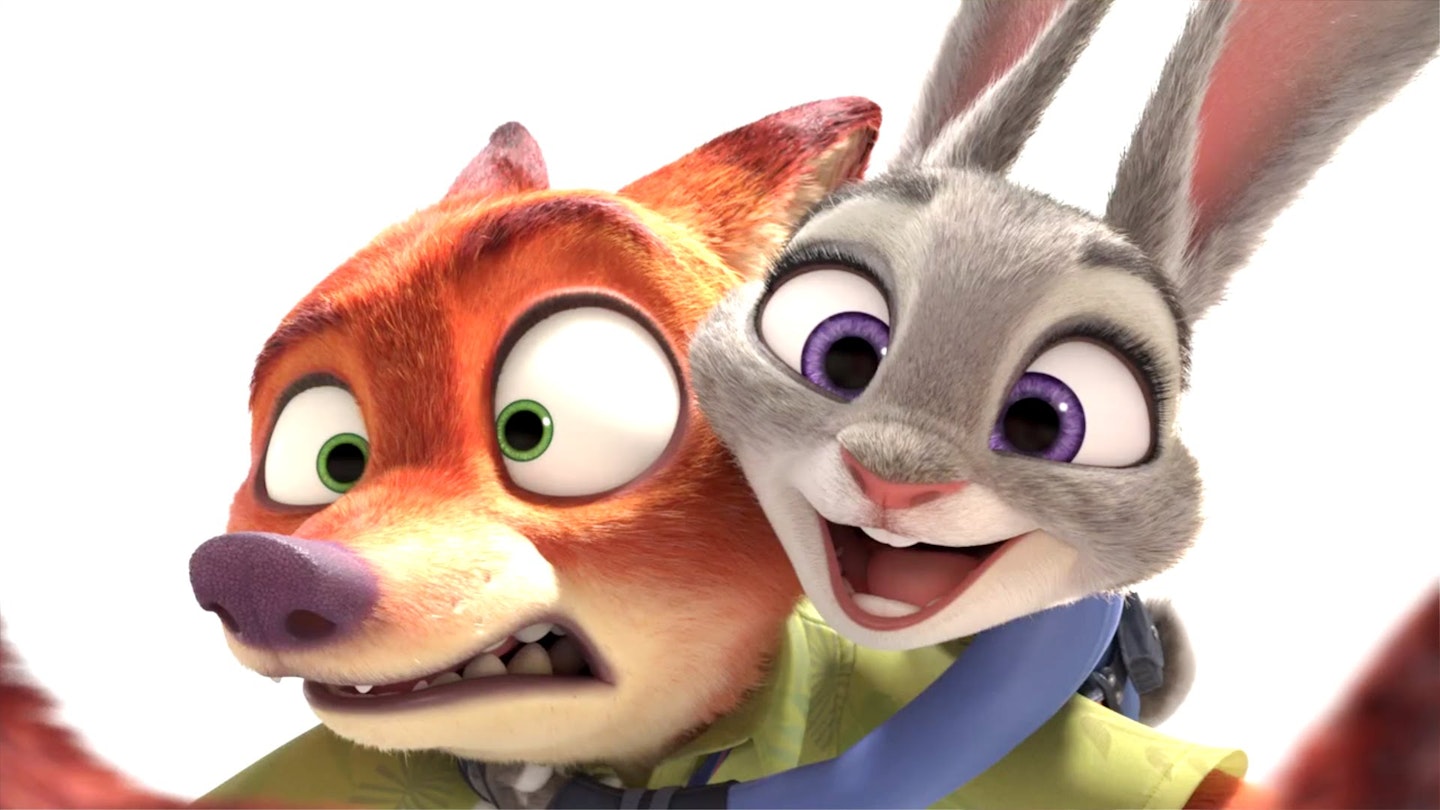
Howard: The response has been pretty incredible for us to watch. We got to go around the world with the film and see it play in different countries and in different languages. It is pretty remarkable that it does work on so many levels. It's a very a smart film. Jerry Bush and Phil Johnson wrote a very, very smart script, and our cast is pretty extraordinary. Rich says this often, but what's nice about the film is that it has entertaining parts, it has good emotion, but at the end it doesn't try to wrap everything up and make it nice and pretty. Hops learns a tough lesson in the world and figures out that, and she even says it, the world isn't as simple as a motto on a bumper sticker. There's something very tricky about how you have to make your way through the world and realize that you have to start with yourself if you're going to make a change. That's a very mature perspective for her to arrive at. That's why I think people really get into the film, because you see that journey through her eyes; someone who believes that the world could be a good place and that she could do good, but it's not what she expected.
